|
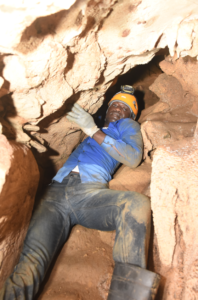
|
Fatai Ilesanmi
I am a PhD student in Environmental Science at Teesside University, studying under Dr Lisa Baldini. The working title of my thesis is “Reconstructing West African palaeoclimate using stalagmites”. My research will focus on how to generate stalagmite palaeoclimate records during my PhD, These records will be used to test the sensitivity of past rainfall in the region to natural (Pre-Industrial Era) and manmade (Industrial Era) climate drivers and constrain the frequency and intensity of past extremes such as droughts and flooding. Stalagmites are excellent recorders of past temperature, rainfall, and vegetation cover. With state-of-the-art laboratory techniques, we can extract this information at monthly to seasonal timescales up to 600,000 years into the past. Under a recently funded National Geographic Explorer Grant, my supervisor, Dr Lisa Baldini, and I are working with West African collaborators in Nigeria, Cameroon, and Gabon to explore limestone terrains across the region for stalagmites suitable to reconstruct past climate
|
 |
Freya Pellie
I’m a PhD student investigating the population recovery of harbour seals (Phoca vitulina) in the Tees Estuary – an area which experienced heavy industrialisation in the 1800s and 1900s. Despite being named for its resident seals, for nearly 100 years seals were absent from the polluted mudflats of Seal Sands, believed to be gone for good. The return of a breeding seal population to this area gives hope that other sites degraded by anthropogenic activity may also become sites of recovery.
|
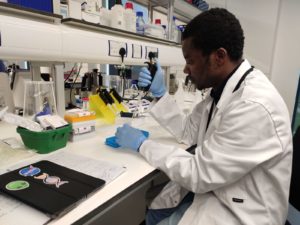 |
Nnamdi Ejekwunadu
My research focuses on understanding the population dynamics of microbial communities involved in anaerobic digestion as a step towards optimization. I aim to unravel the secrets of higher biogas volumes from a microbiome perspective.
|
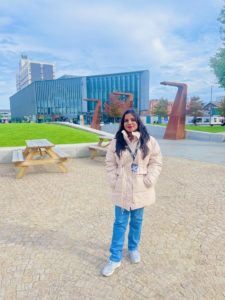 |
Dilmi Nilupuli
I am a PHD student in Environmental Science at Teesside University. My research focuses on peatlands, which are a type of wetland having the potential to offer nature-based solutions in tackling climate change through storing large stocks of carbon, conserving bio diversity, minimalizing flood risk and ensuring safe drinking water. We’ll be mainly looking at shallow peat containing 40% of the carbon stored in blanket bogs which is a research area only a poor attention is paid. The current project will determine impacts of landscape-scale management practices such as burning, grazing, and cutting on carbon sequestration potential of these ecosystems. We’ll be identifying and comparing carbon dynamics in managed and unmanaged shallow peat moorland sites across the North York Moors. Moreover, this project will investigate the shifts in microbial community profiles behind these carbon dynamics and will relate the results to management practices that are being carried out in these ecosystems. The findings of this research will support policy makers in taking management decisions in order to conserve these valuable ecosystems to tackle climate change.
|
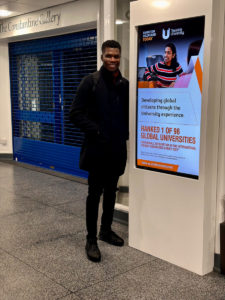 |
Austine Otabor
Austine’s PhD focuses on above and below ground carbon stocks and biotic changes during rewilding. The project will quantify changes in biodiversity, ecosystem function, carbon stocks and their interactions during the initial stages of rewilding using experimental plots. Working under the supervision of Dr Ambroise Baker and Dr Caroline Orr, Austine’s work will lead to the development of novel evidence which can contribute to net-zero and nature recovery policies in the UN decade of ecosystem restoration.
|
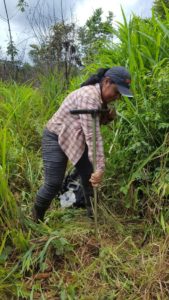 |
Raquel Chun (based at Durham University)
Dr Baldini is the main supervisor to PhD student Raquel Chun’s Maya farming project which is an interdisciplinary collaboration between Durham University, Teesside University, the University of New Mexico and University of South Florida (USA) and Ya’axche Conservation Trust (a Belizean NGO). The project aims to document the impact of climate extremes and uncertainty on small-share Maya farmers practicing rain-fed agriculture in S Belize. The outcome of this research will be used to inform policy-makers working in food and water security, land-use, and disaster mitigation and will be shared with stakeholders (such as NGOs) to enhance resilience of subsistence farming communities across Central America to climate change impacts. Raquel is currently in Belize writing up. She is due to submit in December 2024.
|